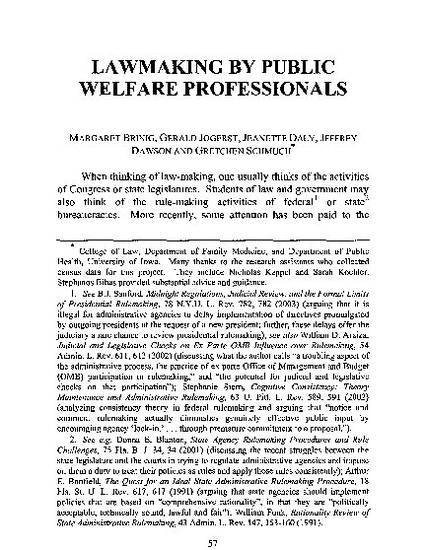
When thinking of law-making, one usually thinks of the activities of Congress or state legislatures. Students of law and government may also think of the rule-making activities of federal or state bureaucracies. More recently, some attention has been paid to the lawmaking power known as prosecutorial discretion (the decision of whether or for what crimes to charge a criminal defendant) or judicial discretion in sentencing. However, so far most of this work has been theoretical or, at best, anecdotal. Further, far less attention has been paid to the ubiquitous activities of the bureaucrat who must decide whether or not to take action in a particular case, though a few articles in law and political science recently have addressed the topic.
This study looks systematically at bureaucratic discretion in a particular case: that of the detection and substantiation of domestic elder abuse, but then generalizes to other fields that feature administrative discretion. As with some other agencies, the social services officials who decide whether or not to police elder abuse are constrained; they suffer from lack of money, understaffing, and occasionally a real confusion of roles. Even with the best of intentions and the elder's interest at stake, the social services agency may be reluctant to enforce the law because they do not see a better situation for the elder.
Available at: http://works.bepress.com/margaret_brinig/23/

Reprinted with permission of Whittier Journal of Child & Family Advocacy.